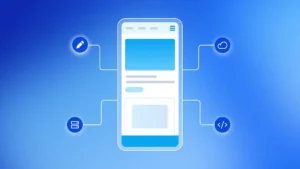In the evolving digital landscape, ethical hacking for software engineers has become an indispensable skill set. Software engineers are no longer just creators of functionality; they are essential defenders of digital assets, tasked with anticipating and neutralizing cyber threats before they cause harm. By mastering techniques such as penetration testing, secure coding, and vulnerability assessment, engineers can build resilient applications that withstand increasingly sophisticated attacks. This article delves deeply into ethical hacking tailored to software engineers, exploring critical tactics, the latest tools and trends, and practical insights to elevate cybersecurity skills competencies. It also highlights why the Software Engineering, Agentic AI and Generative AI course from Amquest stands out as the premier program for gaining these vital skills, combining AI-powered learning, expert faculty, hands-on labs, and industry internships.
Why Ethical Hacking Matters for Software Engineers
Software engineers are the architects of the digital world. As applications grow more complex and interconnected, vulnerabilities multiply, creating opportunities for cybercriminals. Ethical hacking, also known as white-hat hackers, empowers engineers to adopt the mindset and techniques of attackers—but with authorization and ethical intent—to identify and mitigate security weaknesses proactively. Unlike traditional development roles, ethical hacking integrates core cybersecurity skills such as penetration testing, threat modeling, and secure coding into the software development lifecycle (SDLC). This proactive defense approach ensures security is embedded from design through deployment, reducing costly fixes post-release and strengthening overall cyber resilience.
Ethical Hacking vs. Penetration Testing: What Software Engineers Need to Know
| Aspect | Ethical Hacking | Penetration Testing |
|---|---|---|
| Scope | Broad, multi-vector testing across entire systems | Focused, scoped testing on specific systems |
| Duration | Continuous or long-term engagement | Short-term, point-in-time assessment |
| Objective | Identify, exploit, and recommend fixes for all vulnerabilities | Identify exploitable weaknesses within scope |
| Reporting | Comprehensive with remediation guidance | Detailed vulnerability reports |
| Role in Dev Workflow | Embedded in development and security processes | Often separate, pre-release testing |
For software engineers, mastering both is valuable: ethical hacking builds a holistic security mindset and skills, while penetration testing provides targeted insights into specific vulnerabilities. Integrating these practices supports secure software delivery aligned with modern DevSecOps principles.
Evolution of Ethical Hacking in Software Engineering
Ethical hacking originated in the 1970s with government security efforts and has since grown into a critical discipline within cybersecurity. Today, software engineers must incorporate ethical hacking principles throughout the SDLC to:
- Design software with built-in security controls
- Perform continuous vulnerability assessment during development
- Collaborate with security teams on penetration testing and threat modeling
This evolution has given rise to secure coding standards and continuous security validation integrated into DevSecOps pipelines, enabling rapid, secure software delivery.
Cutting-Edge Tools and Trends in Ethical Hacking for Software Engineers
| Phase | Description | Popular Tools |
|---|---|---|
| Reconnaissance | Gathering intelligence on target systems | Nmap, Maltego, Whois |
| Vulnerability Scanning | Automated detection of security weaknesses | Nessus, OpenVAS |
| Penetration Testing | Manual or automated exploitation to validate flaws | Metasploit, Burp Suite |
| Secure Code Analysis | Static and dynamic code analysis to find defects | Veracode, SonarQube |
| Threat Modeling | Identifying and prioritizing potential attack vectors | Microsoft Threat Modeling Tool |
Emerging trends include AI-powered vulnerability scanning and agentic AI-enabled testing frameworks that simulate attacker behavior with unprecedented realism. These technologies empower engineers to detect complex vulnerabilities and adapt defenses dynamically.
Integrating Ethical Hacking into Software Engineering Workflows
- Threat Modeling: Continuously evaluate system assets and attack surfaces to prioritize defenses effectively.
- Secure Coding Practices: Adhere to OWASP Top Ten guidelines to prevent common risks like SQL injection and XSS.
- Automated Security Testing: Integrate static and dynamic analysis tools into CI/CD pipelines for continuous vulnerability detection and remediation.
- Red Team Exercises: Participate in simulated attacks to test system resilience under realistic conditions.
- Social Engineering Awareness: Understand human vulnerabilities and simulate phishing tests to strengthen organizational defenses.
These strategies shift engineers from reactive patchers to proactive defenders, essential in today’s threat landscape.
Learning Through Community and Storytelling
Ethical hacking education thrives on community engagement and storytelling. Real-world case studies, student success stories, and expert-led discussions make complex security concepts tangible and memorable. Active participation in forums like OWASP chapters, GitHub security groups, and ethical hacking communities accelerates learning and fosters collaboration among software engineers.
Measuring Impact: Success Metrics in Ethical Hacking Initiatives
Organizations track ethical hacking effectiveness through:
- Number and severity of vulnerabilities identified and fixed
- Reduction in security incidents and breach attempts
- Time to detect and respond to threats
- Compliance with security frameworks and standards
For software engineers, success is delivering secure code that withstands rigorous penetration testing and contributes to overall cyber resilience.
Case Study: GitHub’s Ethical Hacking Program
GitHub exemplifies ethical hacking’s impact on large-scale software platforms. Its dedicated red team employs a blend of automated vulnerability scanning, manual penetration testing, and threat modeling integrated into CI/CD pipelines. Key practices include:
- Embedding security testing early and continuously in development cycles
- Conducting regular red team exercises simulating advanced attacker tactics
- Training developers on secure coding and threat awareness
Results include a 40% year-over-year reduction in critical vulnerabilities and significantly faster remediation, reinforcing GitHub’s reputation as a security-conscious leader.
Practical Tips for Software Engineers to Master Ethical Hacking
- Build a strong foundation in cybersecurity skills fundamentals, including networking and protocols.
- Gain hands-on experience with popular penetration testing tools such as Nmap, Metasploit, and Burp Suite.
- Adopt and enforce secure coding standards, regularly reviewing OWASP guidelines.
- Conduct routine vulnerability assessment using both automated scanners and manual testing.
- Pursue certifications like CEH or OSCP to validate and deepen your skills.
- Leverage AI-powered tools to enhance vulnerability detection and testing coverage.
- Engage with ethical hacking communities to stay current on emerging threats and defenses.
Why Choose the Software Engineering, Agentic AI and Generative AI Course?
This course uniquely blends software engineering with cutting-edge AI technologies to deliver a comprehensive ethical hacking education:
- AI-led modules simulate real-world hacking scenarios using agentic AI and generative AI, providing immersive, practical learning experiences.
- Hands-on labs and projects develop core skills in penetration testing, secure coding, and vulnerability assessment.
- Experienced industry faculty bring real-world insights and best practices directly into instruction.
- Mumbai-based with national online accessibility, offering flexible learning options for professionals across India.
- Robust internship and placement support through partnerships with leading tech companies ensures career-ready graduates.
This integrated approach equips software engineers to lead in cybersecurity with AI-powered expertise unmatched by other programs.
Conclusion
Ethical hacking for software engineers is no longer optional—it is essential to safeguarding the digital world. Mastering penetration testing, secure coding, and vulnerability assessment empowers engineers to build secure, resilient software that withstands evolving cyber threats. The Software Engineering, Agentic AI and Generative AI course offers the most advanced, practical, and AI-driven pathway to becoming a proficient ethical hacker and software security expert. With expert faculty, hands-on training, and strong industry connections, this program prepares you to secure the future of technology. Explore this course today and take the next step in your ethical hacking journey.
FAQs
Q1: What cybersecurity skills are essential for ethical hacking?
Core skills include penetration testing, vulnerability assessment, secure coding, threat modeling, and familiarity with tools like Nmap and Metasploit. Understanding social engineering tactics is also critical.
Q2: How does penetration testing fit into ethical hacking for software engineers?
Penetration testing simulates attacks to identify vulnerabilities, enabling engineers to fix issues before exploitation.
Q3: What is vulnerability assessment and why is it important?
It systematically identifies security weaknesses in software or networks, prioritizing remediation to strengthen defense.
Q4: How can software engineers learn ethical hacking effectively?
Structured courses, hands-on labs, certifications (CEH, OSCP), and active participation in ethical hacking communities accelerate learning.
Q5: What role do AI-powered tools play in ethical hacking?
AI tools automate vulnerability scanning and simulate attacker behavior, improving detection accuracy and efficiency.
Q6: Why choose the Software Engineering, Agentic AI and Generative AI course?
It combines AI-led modules, expert faculty, practical projects, flexible access, and strong internship support to deliver unmatched ethical hacking education.







